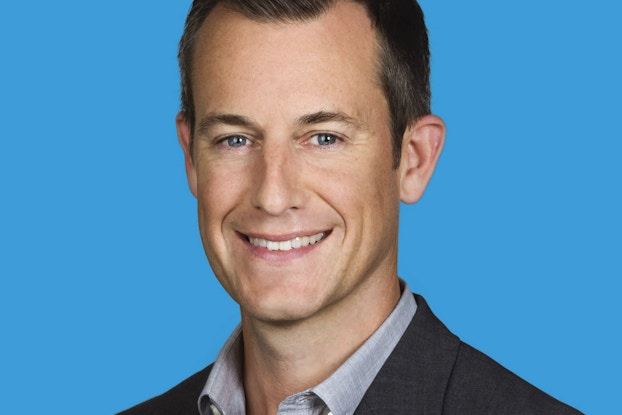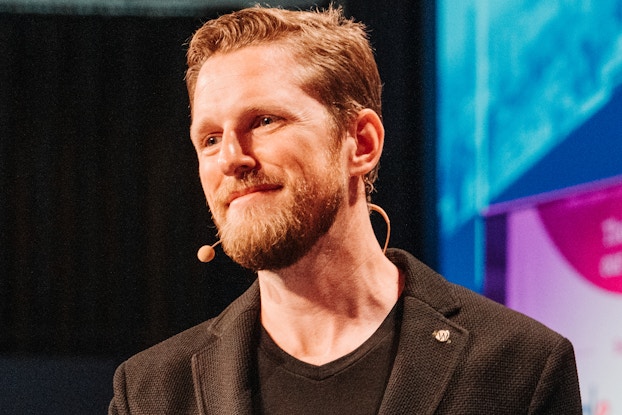
The COVID-19 pandemic changed the way companies do business. Then racial injustice protests showed how much more businesses need to do to drive change, said executives who participated in the Reimagining Business As Usual webinar hosted by Salesforce.
Corporate culture “is not a fixed thing. It has to evolve and if it’s not evolving, we’re not doing our job,” said Matt Mullenweg, co-creator of WordPress and CEO of Automattic.
The webinar, moderated by Good Morning America co-anchor Robin Roberts, featured Mullenweg, Salesforce chief business officer and Quip co-CEO Ryan Aytay, and Starbucks global chief inclusion and diversity officer Zing Shaw.
“There’s no disputing that 2020 has turned everyone’s world upside down — hurricanes, wildfires, COVID-19, fighting for rights and equality. The need to adapt and evolve is now greater than ever,” Roberts said in introducing the panel.
Here are some of the business lessons learned during a time when, as Mullenweg put it, “the only constant is change.”

Starbucks: ‘Big enough to make a difference’
The pandemic and racial justice protests highlighted the importance of talking with, and listening to, all of Starbucks’ employees, Shaw said.
In response to the protests, Starbucks asked, “how can we utilize our platform as a convener of people” — a third place where people gather — to promote positive discourse, she said.
The coffee giant brought its workforce together in an open forum to discuss systemic racism. The company also took steps to make sure Black employees were getting the support they need, Shaw said.
“We recognize that we are not big enough to cure racism. We are not big enough to cure sexism, ageism or any of the isms. But we are big enough to make a difference and a dent,” she said.
Making that difference will be a long journey, Shaw said. It will take “constant forms of training — not just PowerPoint sessions and not just webinars, but real courageous conversations with thought leaders in different industries,” she said.
We recognize that we are not big enough to cure racism. We are not big enough to cure sexism, ageism or any of the isms. But we are big enough to make a difference and a dent.
Zing Shaw, global chief inclusion and diversity officer, Starbucks
Diversity and inclusion
Businesses across the country are embracing diversity and inclusion efforts. If you're looking to write a D&I statement for your business, read on for tips and advice.

Salesforce: Business can be a platform for change
Salesforce has committed to doubling its Black U.S. executive ranks, and to increasing its total number of Black employees nationwide by 50% by 2023.
Companies can fight systemic racism by “striving to create a workplace that reflects the community you work and live in,” Aytay said. A diverse work force enables employees “to bring their authentic selves to work every day.”
Businesses also need to use their buying power to support Black-owned businesses, he said. “Talk to your procurement teams. Ask, ‘How many Black-owned businesses are you working with?’”
While the way Salesforce and other companies operate has changed dramatically this year – Salesforce has told its employees they can work remotely until August 2021. “What didn’t change was our focus and our belief that business can really be this amazing platform for change,” Aytay said.

WordPress/Automattic: A work culture that tackles unconscious bias
At Automattic and WordPress, working remotely was part of the corporate culture long before the pandemic. All of its 1,200 employees in 77 countries were already working from home.
Automattic’s culture of remote work could be an example of how to rethink exclusionary practices, Mullenweg said. At Automattic, “You can go through the entire hiring process never doing a video or a voice chat,” he said. “It can all happen over text, which of course removes many opportunities for conscious or unconscious bias in the hiring process,” he said.
“This seems radical — how can we hire someone without ever seeing them or talking to them? But we’ve done it for hundreds and hundreds of people and it works,” Mullenweg said.
Yes, the world has changed, Mullenweg said, but the question for companies is, “How can we take advantage of this and become stronger.? If you try to cling to exactly what you did before, you become weaker,” he said.
“The only constant is change, and we’re always going to be reimagining, trying the opposite of what we did before,” Mullenweg said.
CO— aims to bring you inspiration from leading respected experts. However, before making any business decision, you should consult a professional who can advise you based on your individual situation.
Follow us on Instagram for more expert tips & business owners stories.
CO—is committed to helping you start, run and grow your small business. Learn more about the benefits of small business membership in the U.S. Chamber of Commerce, here.








